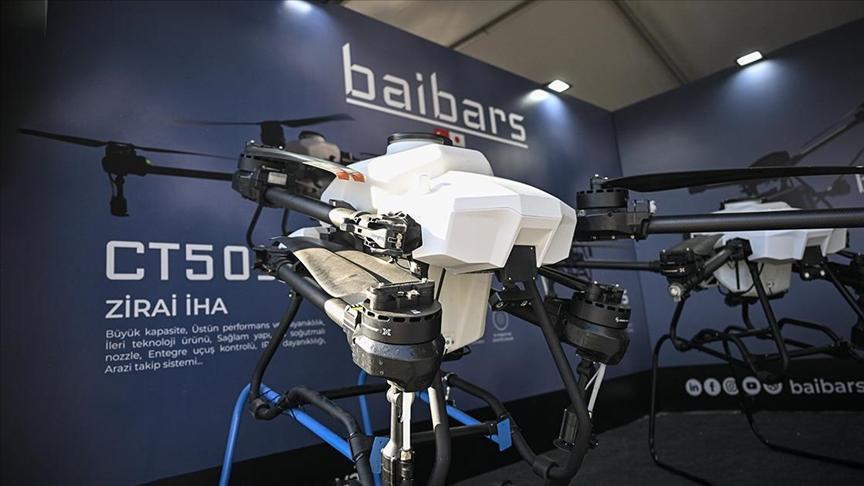
Baibars Mechatronics Aviation, specializing in developing and supporting civilian rotary-wing drones, will begin production in the United States with financial backing from Japan.
Celal Çağlayan Erguvan, chairman of the Board of Directors at Baibars Mechatronics Aviation, stated in an interview with state-run Anadolu Agency that the company, founded in 2015, began manufacturing rotary-wing UAVs, with a focus on agricultural drones in early 2021.
Erguvan highlighted two key milestones in the company's progress — the support received from Türkiye İş Bankası in 2021 and the foreign direct investment secured from Japan in late 2023.
The company has announced plans to manufacture agricultural drones in Detroit, Michigan. According to Erguvan, production is scheduled to commence by March 2025, with the facility already nearing completion.
"There is significant demand in the U.S. for agricultural unmanned aerial vehicles. The Midwest region, in particular, is ideal for field crops that benefit from this technology. These drones reduce input costs, support sustainable agriculture, lower carbon emissions, and allow for more efficient pesticide application using less water," he stated.
The new-generation agricultural drones, designed for enhanced productivity and cost-effectiveness, will feature a 50-liter liquid tank and a 70-liter fertilizer tank, capable of covering up to 220 acres per hour.
Additionally, their advanced centrifugal spraying system ensures efficient pesticide application while minimizing chemical usage.
Equipped with the Terrain Tracking System and Obstacle Detection System, both developed in-house by Baibars, the drones offer safe operation over varied terrains along with high maneuverability.
They are also designed for durability, incorporating superior protection against water and dust, ensuring reliable performance under challenging conditions.